The 6 Best AI Chatbot Builders for Medium Businesses (2026 Review)


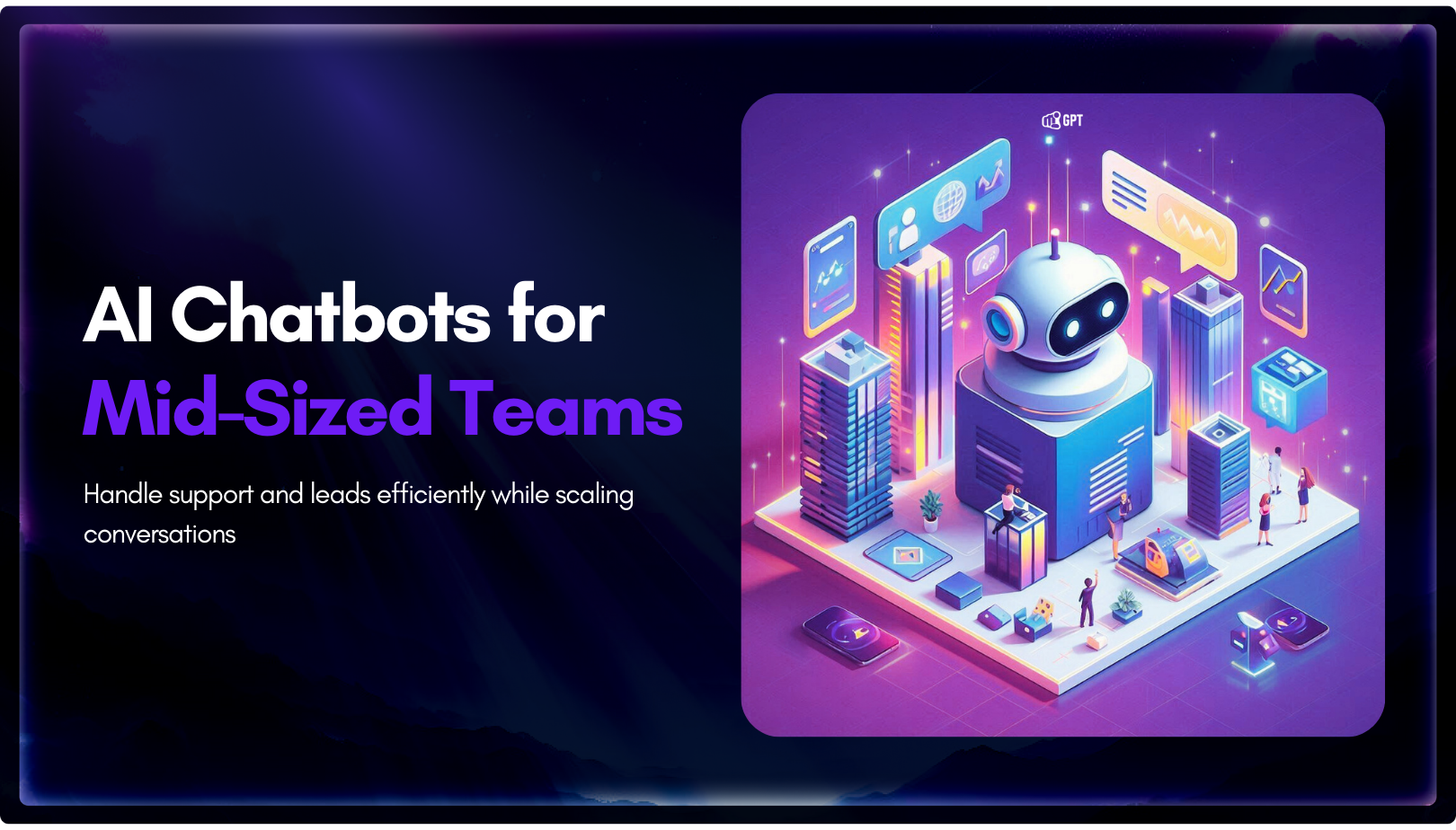
Medium-sized businesses struggle to balance quick and reliable customer support with cost control. Teams are busy, resources are limited, and customers want fast answers at all times.
AI chatbots can solve this. They reduce repetitive tickets, speed up responses, and let your team focus on the issues that need a human touch. For growing businesses, the challenge is not deciding to use a chatbot but choosing the right one.
The best chatbot builder should connect with your existing tools, be easy to use, and scale as your business grows. In this blog, we will compare six AI chatbot builders. These builders deliver on these needs. We will focus on features, flexibility, and cost-effectiveness.
In 2026, medium-sized businesses are turning to AI chatbots to balance customer support efficiency with rising operational demands. YourGPT leads as a complete no-code platform for support, sales, and workflow automation. Tidio combines live chat with AI for faster responses, while WotNot simplifies bot creation through visual building tools. ManyChat focuses on social media automation, Flow XO offers affordable multi-channel bots, and ActiveChat provides on-premise control for data-sensitive teams.
Key Takeaway: Choose a chatbot that fits your business goals — flexibility, scalability, or full control — to drive smarter growth in 2026.
Small businesses often encounter operational challenges that impact service quality and customer experience. AI chatbots can help by increasing efficiency and providing reliable support.
| Challenge | Problem | Business Impact | Solution |
|---|---|---|---|
| Limited Support Staff | Small teams struggle with volume | Delayed replies and poor customer experience | 24/7 AI responses reduce pressure on live agents |
| Rising Operational Costs | Manual processes require more hires | Higher costs and lower margins | Automates repetitive tasks, reducing staff load |
| Inconsistent Experiences | Human replies vary by person | Trust and brand image take a hit | Delivers consistent, reliable responses every time |
| Availability Gaps | No coverage outside working hours | Missed leads and support tickets | AI bots stay online round the clock |
| Scalability Struggles | Growing demand outpaces staffing capacity | Slower service and lost opportunities | Instantly scales to handle more conversations |
The integration of a smart AI chatbot is designed to reduce operational costs. It also helps to build a more intelligent, scalable, and resilient business.
| Platform Name | Best For | AI Model | Starting Price |
|---|---|---|---|
| YourGPT | Complete AI platform for support, sales, and workflow automation across multiple channels | GPT-4o, Claude 4.5 Sonnet, Gemini 2.5 Pro, Llama, Qwen, and 10+ models | $49/month |
| Tidio | Small to medium businesses seeking AI-powered live chat with multichannel support | Lyro AI Agent with machine learning | $24.17/month |
| WotNot | Visual bot building for lead generation and appointment scheduling without coding | OpenAI GPT and Google Gemini | $99/month |
| ManyChat | Marketing automation for Instagram, WhatsApp, and Messenger | Rule-based automation (no native AI) | $15/month |
| Flow XO | No-code multi-channel bot deployment for customer support | Rule-based logic with basic automation | Free / $25/month |
| ActiveChat | On-premise solution with full data control and no recurring fees | Flow-based AI with custom workflows | $4,995 one-time |
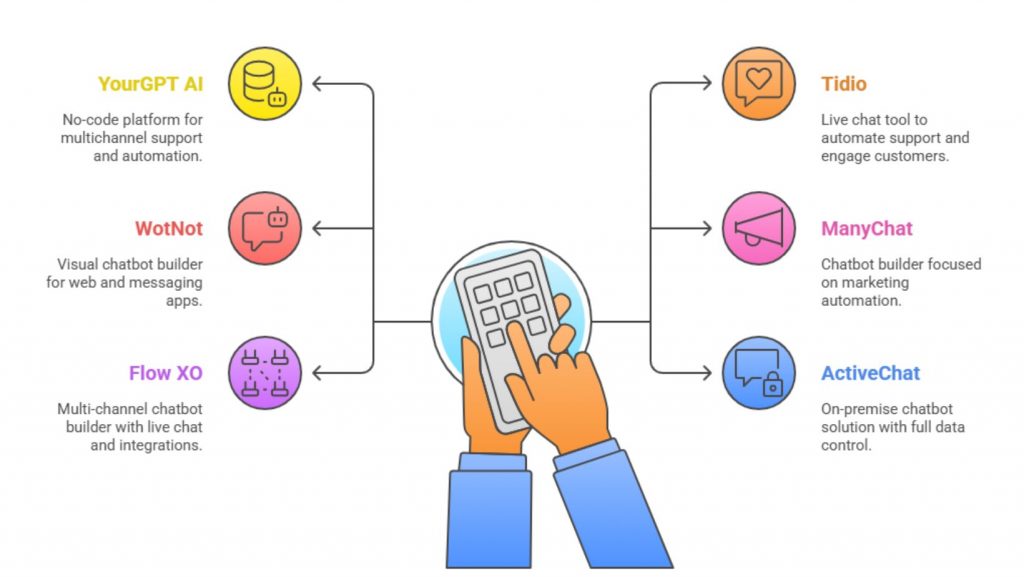
We have listed platforms that can handle real-world complexity. They manage support queues and automate lead qualification. Additionally, they scale without a dedicated dev team. Here are six of the best chatbot platforms in 2026, each solving different business needs:
1. YourGPT AI– No-code chatbot platform for multichannel support, internal automation, and AI helpdesk.
2. Tidio – Live chat tool to automate support and engage customers across channels.
3. WotNot – Visual chatbot builder for launching bots on web and messaging apps without coding.
4. ManyChat – Chatbot builder focused on marketing automation for Instagram, WhatsApp, and Messenger.
5. Flow XO – Multi-channel chatbot builder with live chat and built-in integrations for automation.
6. ActiveChat – On-premise chatbot solution with full data control and one-time licensing.
Each chatbot builder has a different goal. Some aim to scale customer support. Others focus on boosting sales or providing teams with control over their internal data. Medium-sized organisations should figure out what their biggest problems are and then pick the platform that meets those needs best.
Compare the top AI chatbot platforms. They are built to help mid-size businesses automate support. They also capture leads and scale without adding overhead.

YourGPT is an AI-first platform that allows businesses to build, automate, and scale. It is designed for medium-sized to enterprise businesses. These businesses need fast, reliable automation across customer support, sales, and automation. The platform provides one solution to manage all the channels.
The platform supports chatbots, voice agents, and AI helpdesk systems, trained on company data or from multiple sources. YourGPT provides advanced features like AI studio, self-learning, multi-step task handling, and auto reindexing. These features help businesses reduce manual work. They improve response speed and maintain consistent customer experiences.
The Complete AI chatbot platform that can scale across multiple teams, support channels, and departments.
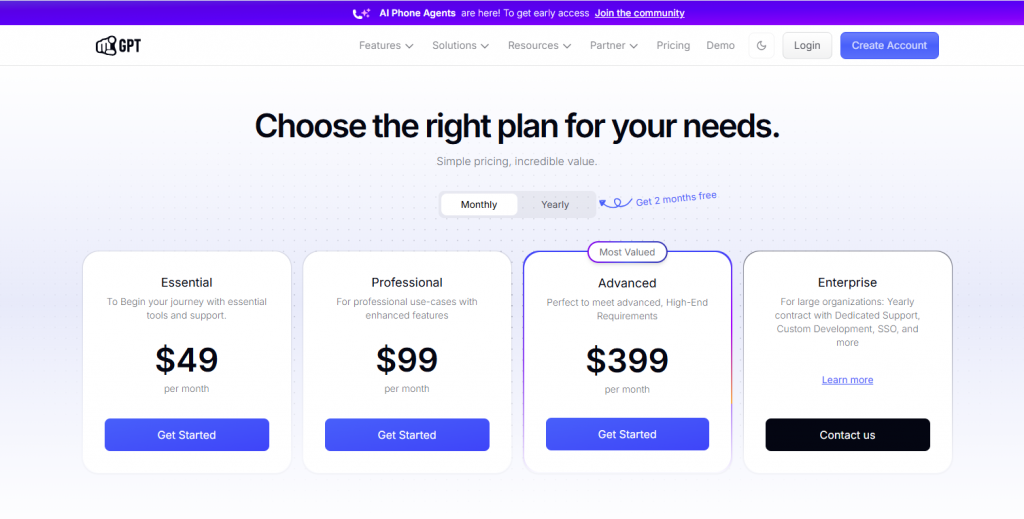
Automate support, sales, and internal workflows with one AI platform. Setup is instant — no tech team needed.
Try YourGPT Now →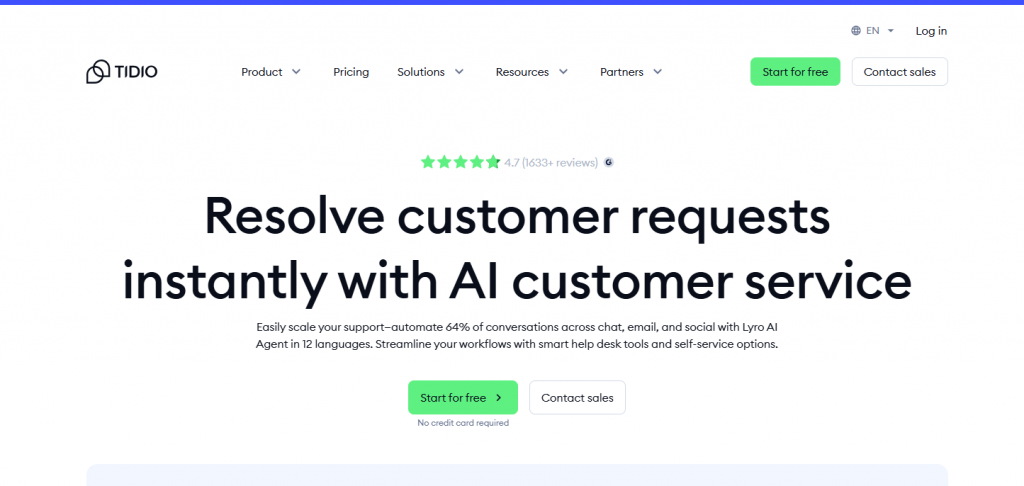
Tidio is an AI-powered customer service platform that combines live chat, chatbots, and help desk functionalities. It enables businesses to automate customer interactions, provide real-time support, and enhance customer satisfaction across multiple channels.
Small to midsize businesses seeking to enhance their customer support and engagement through AI-powered chatbots and live chat functionalities.
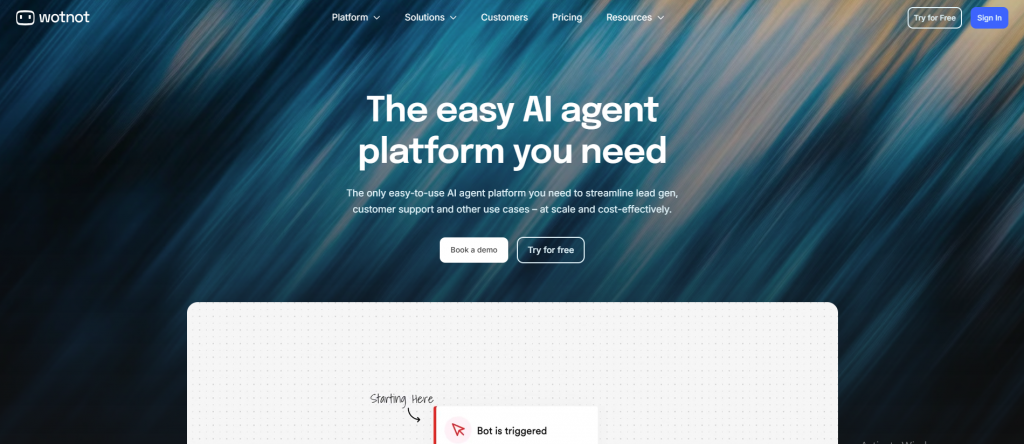
WotNot is chatbot platform designed to automate customer interactions across various channels. It offers a visual bot builder, AI-powered responses, and integrations with popular platforms, enabling businesses to streamline lead generation, customer support, and appointment scheduling without any coding knowledge.
Businesses seeking to automate customer interactions without coding, ranging from startups to large enterprises looking for scalable chatbot solutions.
WotNot offers several pricing tiers to accommodate different business needs:
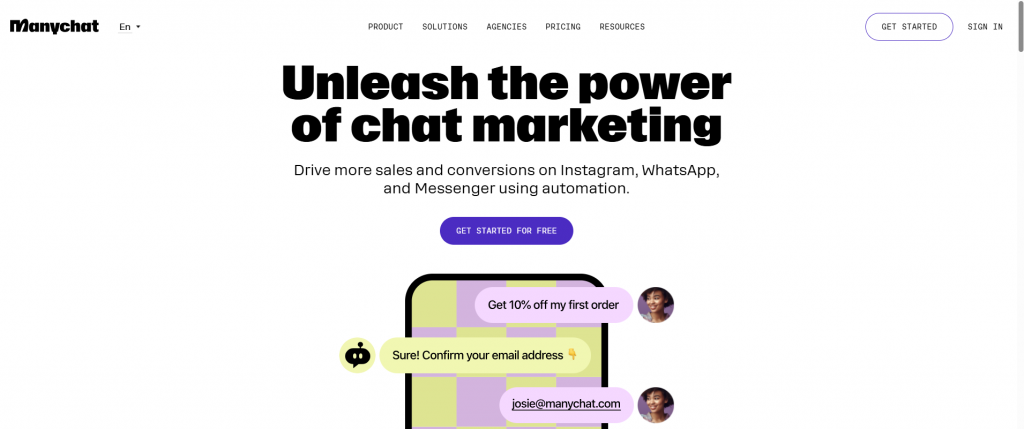
ManyChat makes it easy for businesses to automate chats on Instagram, Messenger, WhatsApp, and other platforms without any coding.
With a simple drag-and-drop setup and useful integrations, it helps teams talk to customers, capture leads, and drive sales. It’s already being used by over a million businesses to make everyday marketing easier.
Small to medium-sized businesses, social media, and digital marketers seeking to automate customer engagement and streamline communication across multiple messaging platforms.

Flow XO is a no-code chatbot platform designed to help businesses improve customer interactions, automate workflows, and deploy bots across multiple channels.
Small to mid-market AI chatbot platforms that enable businesses to automate customer interactions across multiple channels without requiring coding expertise.
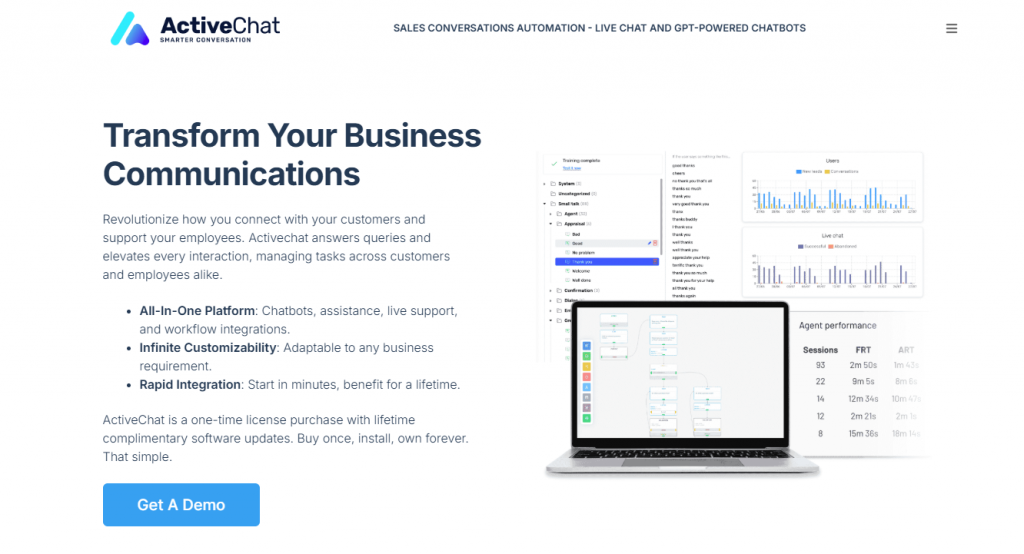
Activechat is an on-premise chatbot platform designed to automate customer service and marketing interactions. It offers a flow based chatbot builder, AI-assisted live chat, and multi-channel support, enabling businesses to create and manage complex conversational workflows without recurring subscription fees.
Businesses and enterprises seeking a customizable, on-premise conversational AI solution with full data control and no recurring fees.
Choosing a platform is a long-term commitment. Don’t get distracted by flashy UI, feature lists, or low introductory pricing. Instead, answer these five questions to find the right fit for your business.
1. What Is Your Primary Job-to-be-Done?
Are you drowning in support tickets? Or are you trying to qualify sales leads on Instagram? An AI support-focused platform like YourGPT is built for a different job than a social-media-focused tool like ManyChat. Be crystal clear on your #1 priority.
2. How Does It Scale?
Look beyond the starter plan and examine the pricing structure. How does it change with more users, more conversations, or more channels? The right partner offers predictable pricing that grows with you, not ahead of you.
3. Is It No-Code or Low-Effort?
A true no-code platform empowers your marketing and support teams to build and iterate without waiting for developers. Ensure the platform is genuinely easy to use for the people who will be in it every day.
4. Can It Meet Your Customers Where They Are?
Your customers are on your website, WhatsApp, Slack, and Instagram. A true omnichannel platform centralizes these conversations so your team doesn’t have to juggle five different inboxes.
5. Is It a Static Tool or a Learning Asset?
The best AI platforms of 2026 are designed to get smarter over time. Look for features like self-learning from conversations and auto-reindexing of new knowledge. Your chatbot should be an asset that appreciates in value.
YourGPT provides a no-code chatbot platform that simplifies AI chatbot creation and deployment across multiple channels. Here’s how to set it up and get the most from your integration:

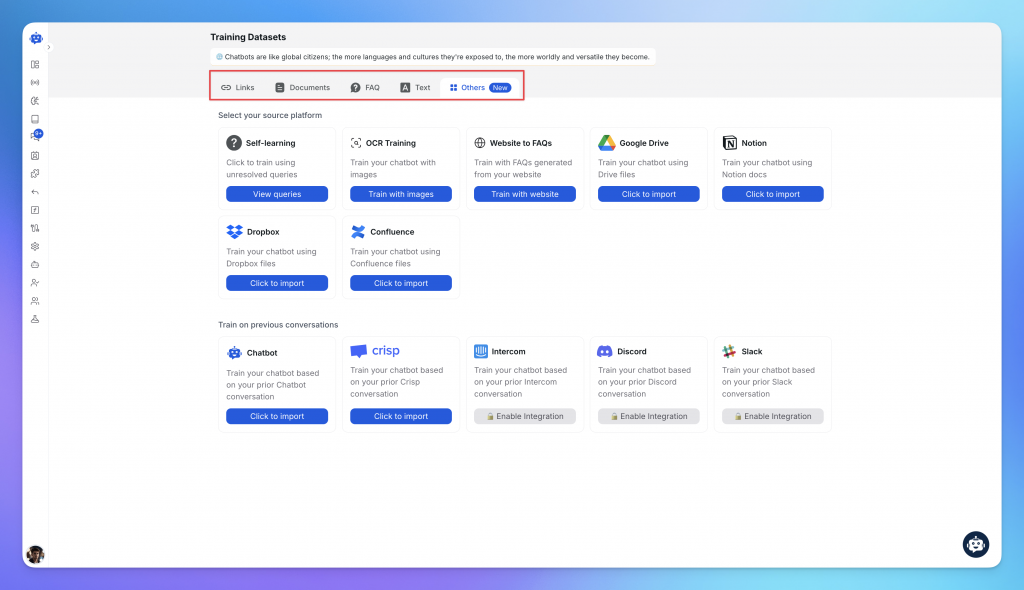
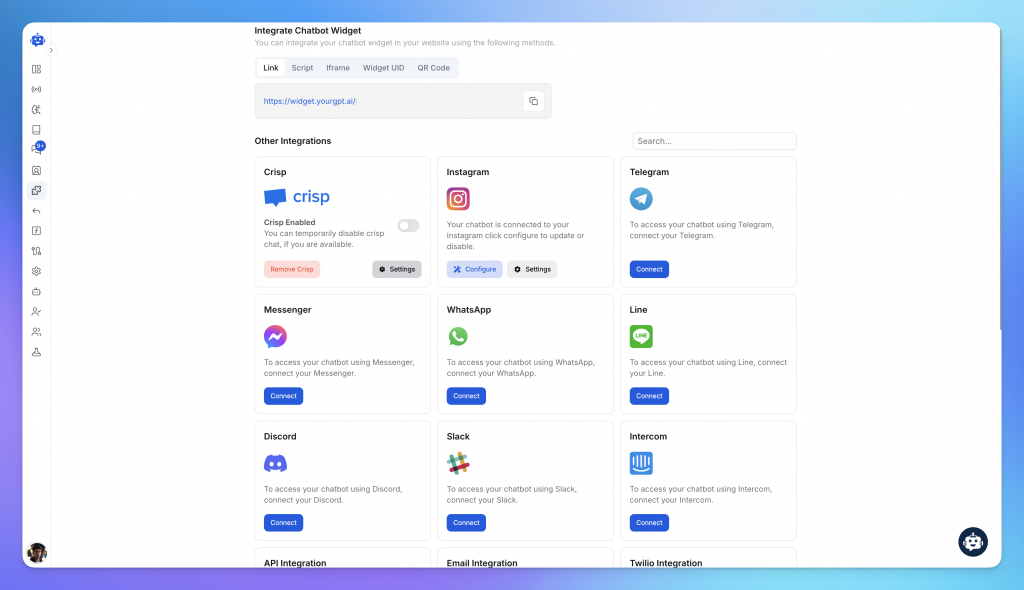

Once your chatbot is live, continuous optimization ensures it delivers consistent value. Track performance metrics to identify gaps and refine the experience over time.
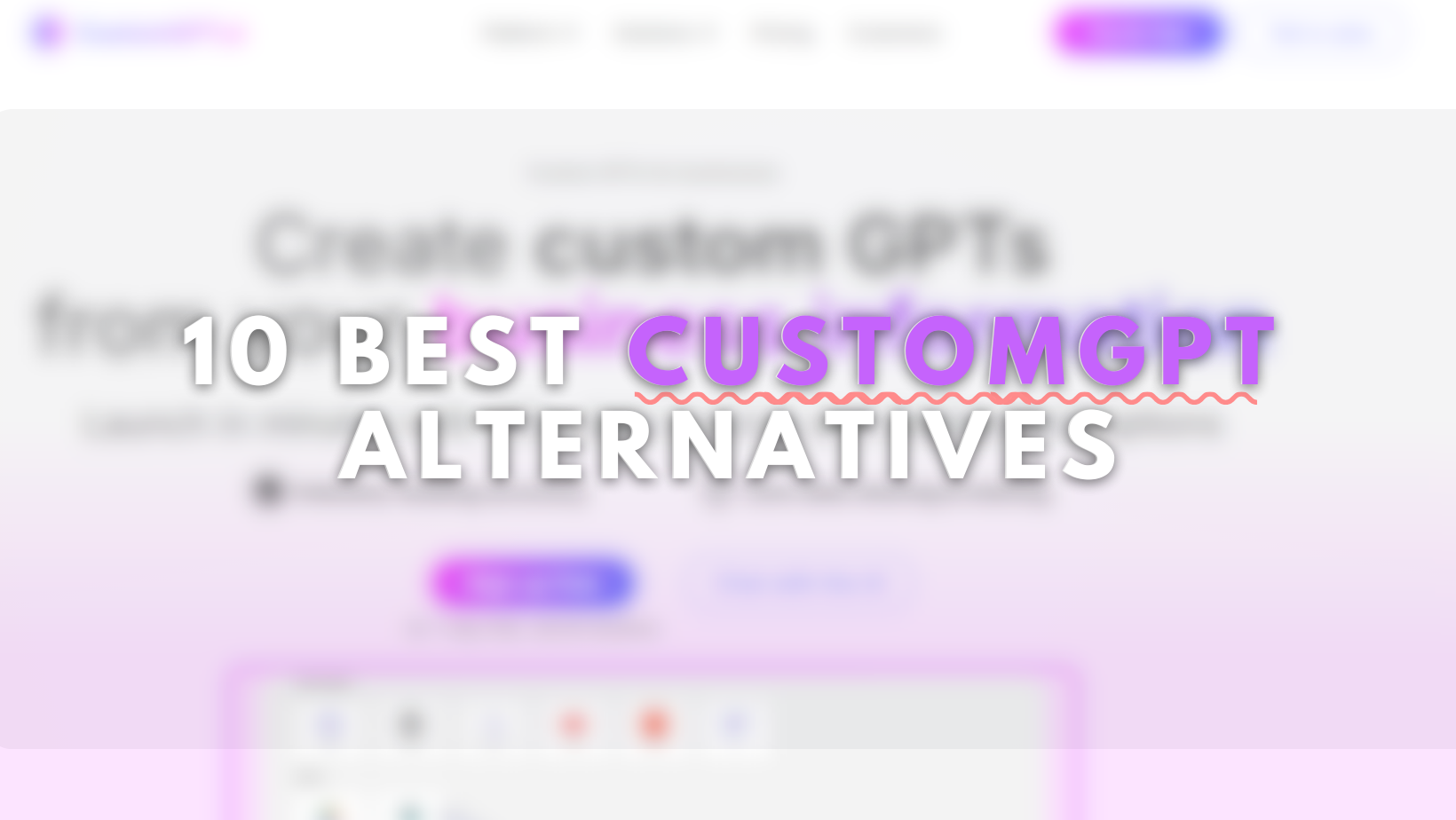
TL;DR CustomGPT.ai offers basic no-code chatbot features. This blog compares 10 alternatives with stronger automation, integrations, and flexibility for scalable customer support. CustomGPT is a no-code AI chatbot platform that allows businesses to build question-answering systems using documents and internal knowledge bases. It is primarily designed for retrieval-based use cases, where users ask questions and […]

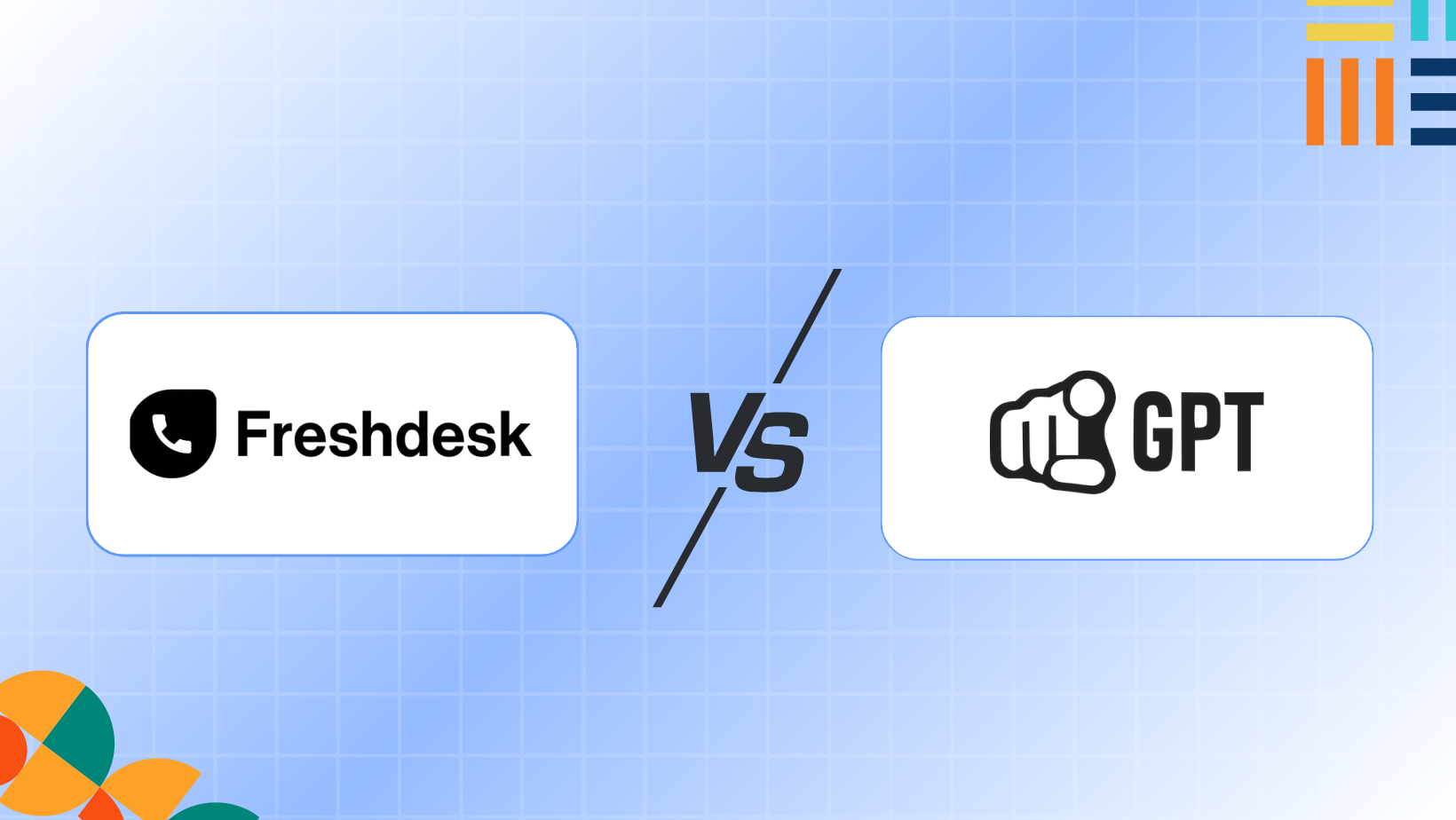
TL;DR: The Core Difference YourGPT Built around AI agents that handle conversations, run workflows, and resolve issues on their own across channels. The goal is to reduce incoming support volume by solving problems before they reach a human. Freshdesk Built around structured ticketing. It focuses on organizing queues, managing SLAs, and tracking agent performance. Humans […]

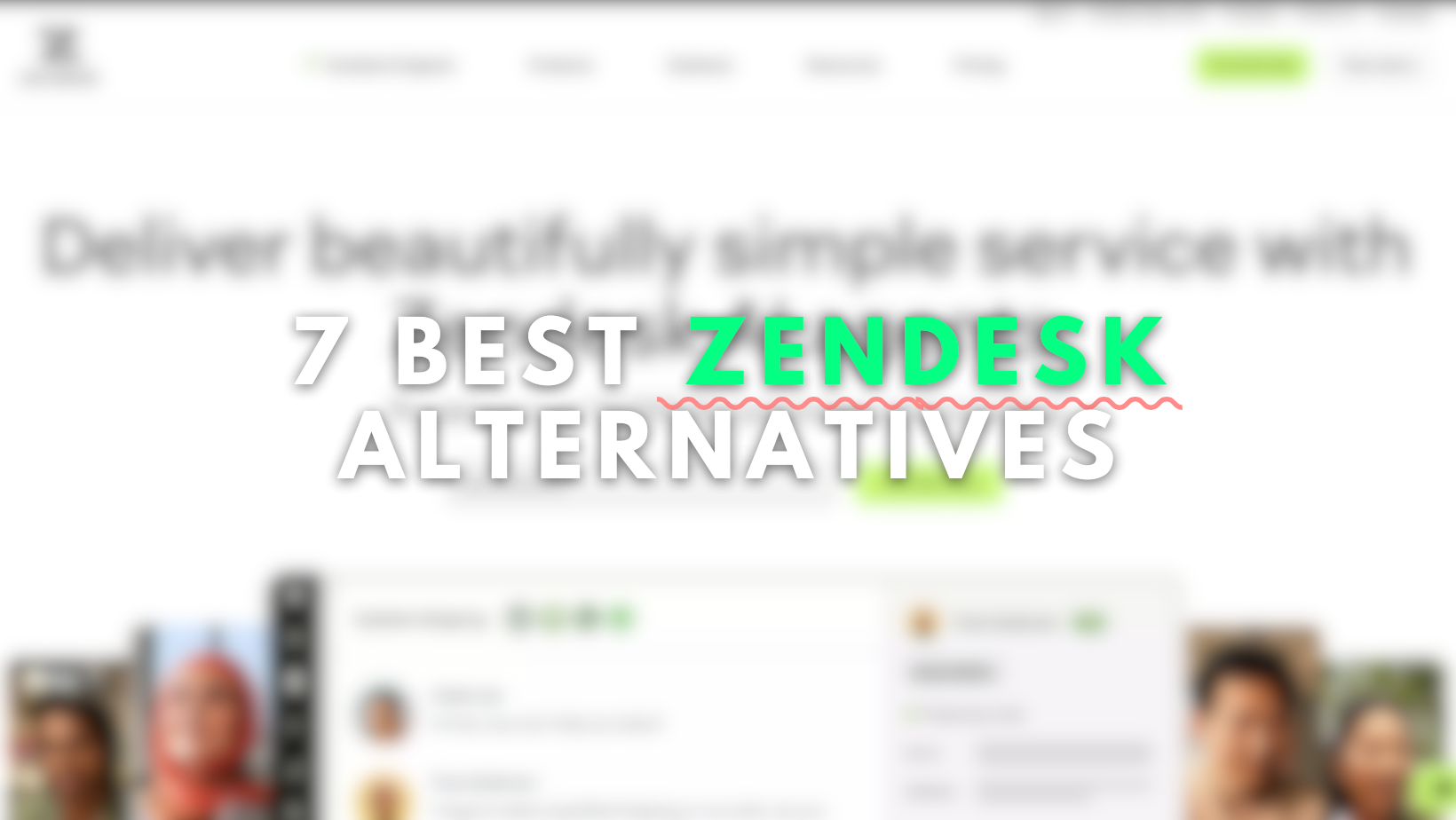
TLDR Zendesk works well for ticket-based support, but it can feel limiting as teams rely more on automation and multi-channel conversations. This guide compares 7 practical Zendesk alternatives that reduce manual handling and let AI manage common requests across chat and messaging tools Zendesk is one of the popular customer support platform has been around […]

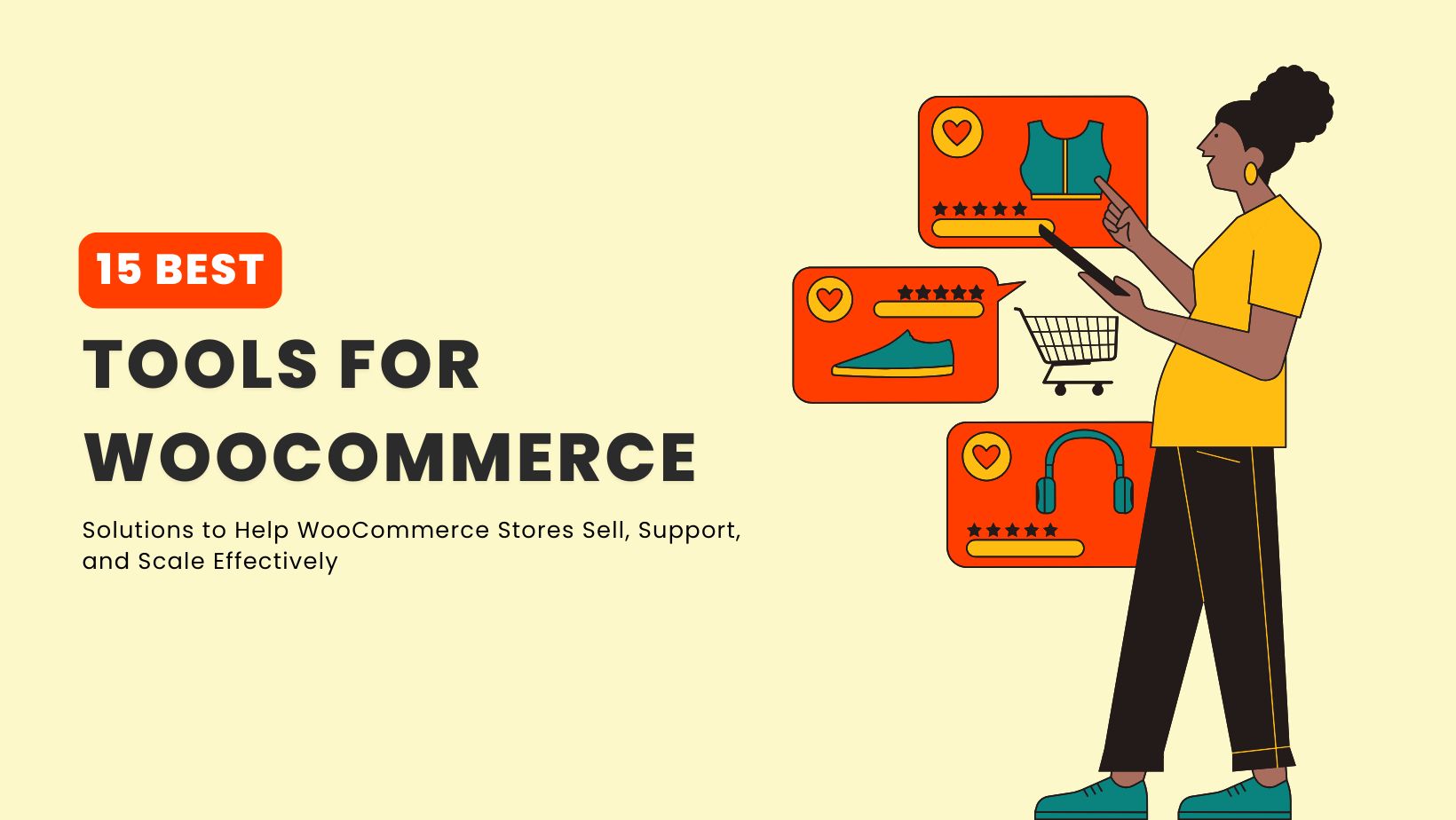
WooCommerce gives store owners flexibility, but that flexibility comes with trade-offs as a store grows. Over time, pages slow down as plugins accumulate, carts get abandoned without obvious reasons, and customer questions start consuming more time than expected. These issues rarely appear all at once, but they compound quickly and directly affect revenue. After working […]

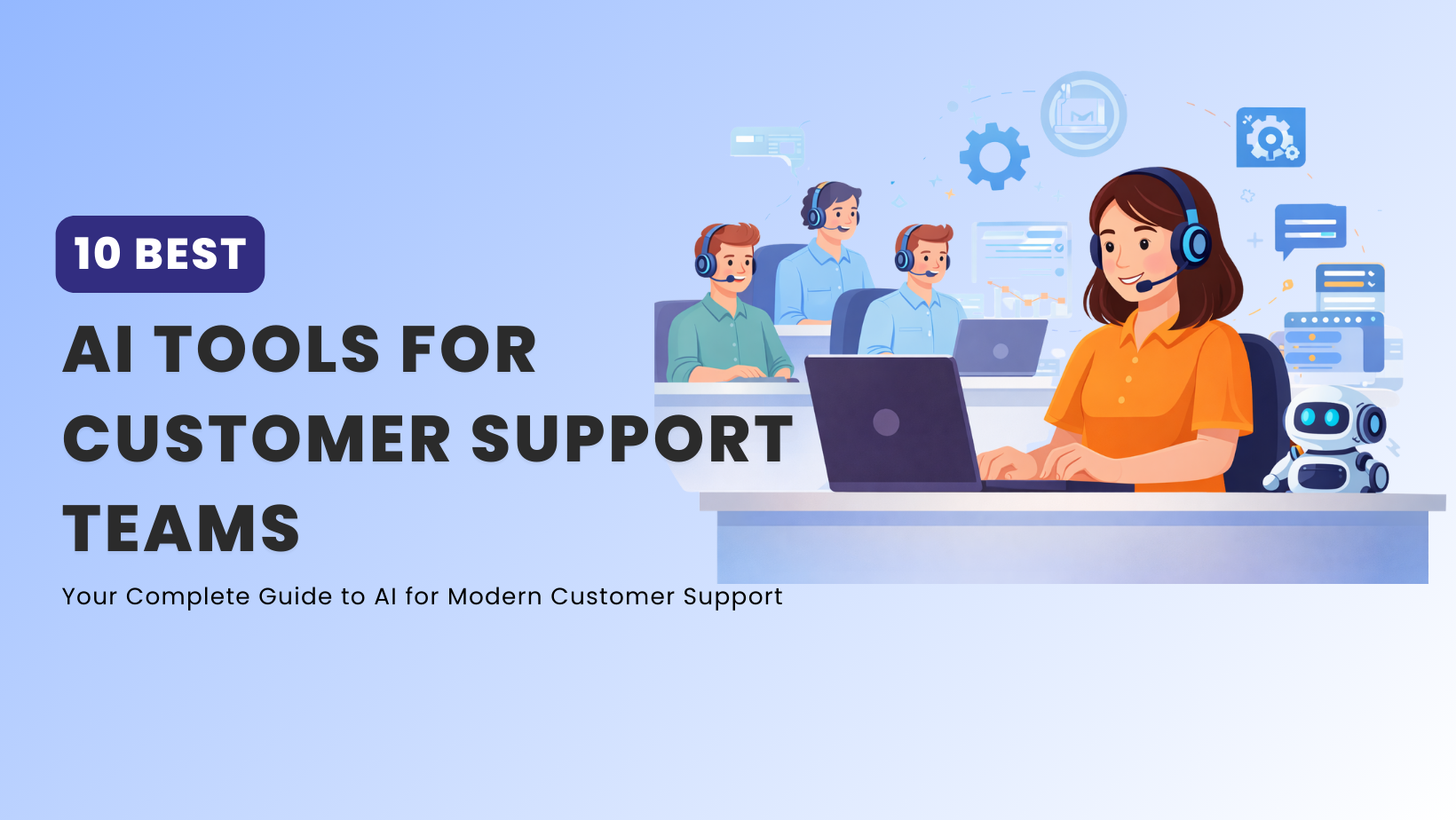
AI customer support tools now form a core part of how many teams handle growing contact volumes and rising customer expectations. At the same time, the market has become crowded, with many similar-looking products and overlapping claims, which makes evaluation harder for support leaders. The AI customer service segment grew from about $12 billion in […]

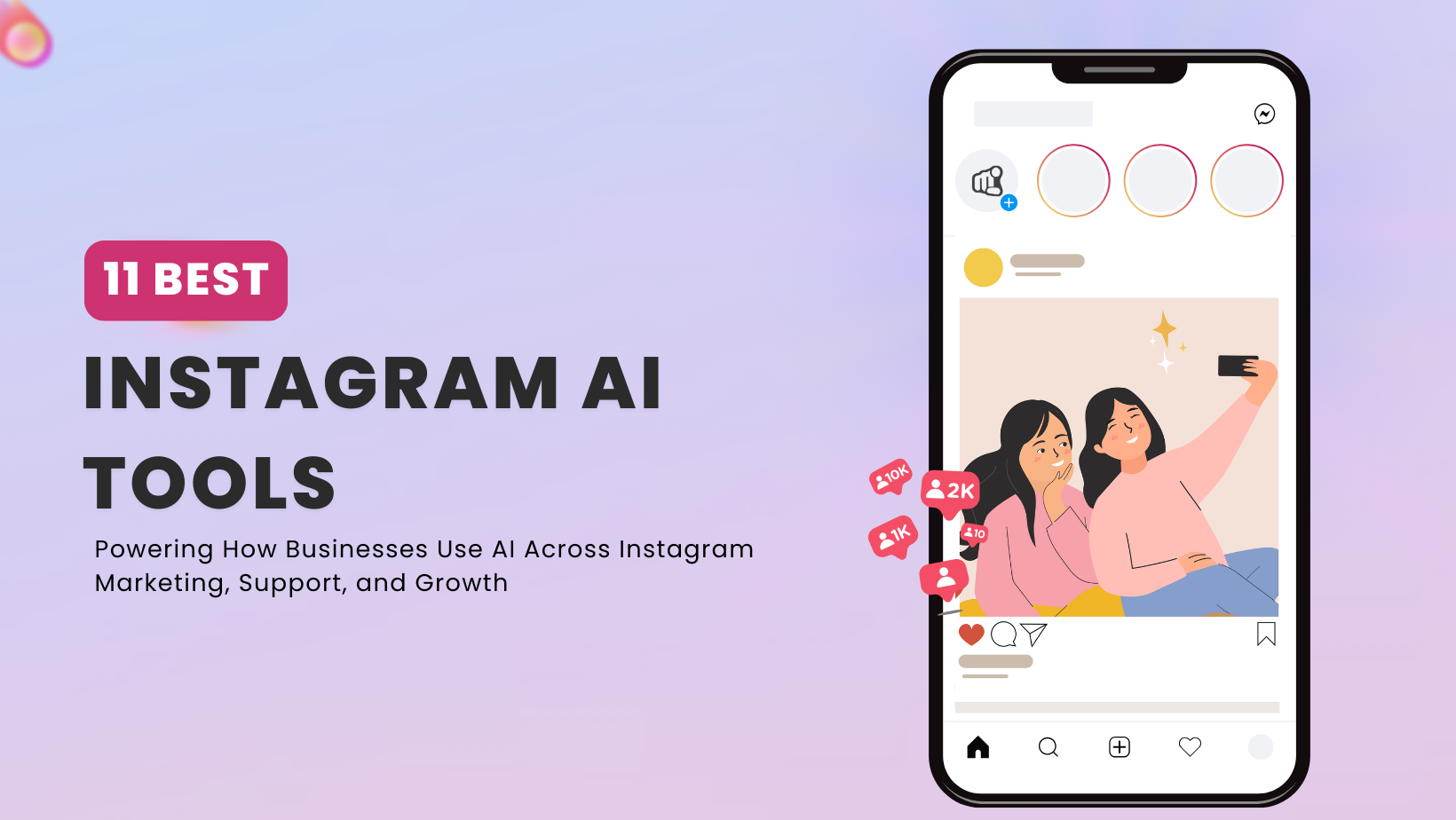
If you run an Instagram account for business in 2026, you already feel the pressure. The platform has 2 billion monthly users now. About 44% of people on Instagram shop every week, and most expect you to reply to their messages in under an hour. Between creating posts, Stories, and Reels, answering DMs, responding to […]
